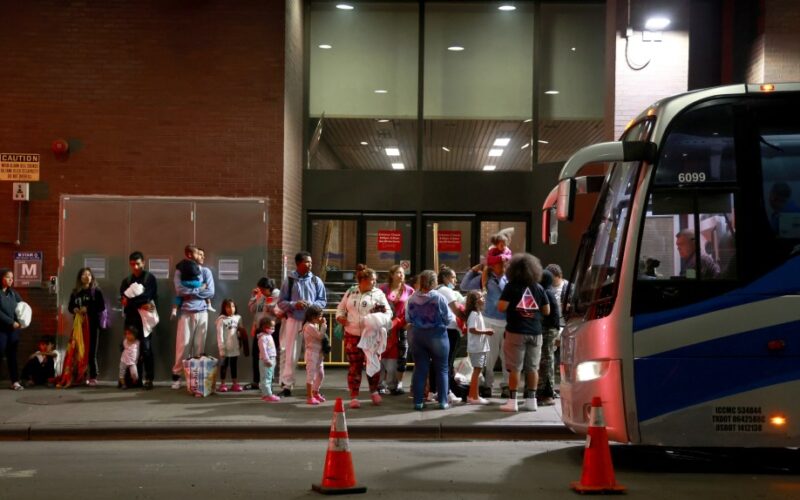At the outset of the COVID-19 pandemic, I was the executive director of an immigrant-serving nonprofit — New Immigrant Community Empowerment also known as NICE, in Jackson Heights, Queens.
When Elmhurst Hospital was overwhelmed and our neighborhood became the “epicenter of the epicenter,” I faced impossible choices: how to keep our doors open, protect staff, and serve families who depended on us, all the while, community needs continued to grow exponentially.
I pressed City Hall for answers: What was the plan to support immigrant communities? Especially the most vulnerable, essential workers delivering food without adequate protection, families excluded from federal aid, neighbors who couldn’t stop working because their survival depended on it. And how will the city support the nonprofit organizations that stayed open while so many others closed their doors?
Years later, I now sit on the other side of those calls, serving as the city immigrant affairs commissioner. In this role, I have managed through overlapping crises: the pandemic’s aftermath, the sudden arrival of hundreds of thousands of asylum seekers, and the shifting federal policies that continue to upend the lives of immigrant communities.
As commissioner, I’ve remained a strong advocate for nonprofit organizations, particularly those that serve on the ground supporting the most vulnerable communities. I’ve lived the reality they face, and I know that the pressing issues of our time, whether on immigration, education, health care, and so on, cannot be solved overnight by any one sector. These issues are deeply systemic and, in many cases, decades in the making.
This is why, as Nonprofit Week concludes, I want to take the opportunity to not only celebrate our immigrant-serving nonprofits and thank them for their partnership but also emphasize how critical a role our work together is for the future of our city and our immigrant communities.
During my time at the Mayor’s Office of Immigrant Affairs (MOIA), we have overseen historic investments to strengthen our work with immigrant-serving nonprofits, delivering immigration legal services, English classes, and other social services for tens of thousands of New Yorkers, and helping individuals and families find stability in moments of crisis.
This year, my office launched a network of more than 125 MOIA Centers, the most comprehensive and coordinated municipal immigrant legal services and community support network in the nation.
This network is made up of nonprofit organizations we contract with, located in immigrant dense neighborhoods across the five boroughs. It was designed to establish a citywide infrastructure that works hand-in-hand to coordinate efforts, share knowledge, and deliver services more effectively where they are needed most.
This Nonprofit Week, MOIA convened this network of more than 50 immigrant-serving nonprofits, alongside key leaders and staff from across city government for a two-day conference.
The convening included discussions with the Schools Chancellor Melissa Ramos, Youth and Community Development Commissioner Keith Howard, Administration for Children’s Services Commissioner Jess Danhauser and Consumer and Worker Protection Commissioner Vilda Vera Mayuga.
Also there were people from the Mayor’s Office to End Gender Based Violence, the Mayor’s Office of Nonprofit Services, the Mayor’s Office of Contract Services and many more city leaders. The conference reinforced relationships and channels of communication between immigrant serving nonprofits and city government that allow us to respond quickly and work in true partnership.
Together, we also began to think about what the next 10 years of immigration will look like, what it will take for local government and nonprofit organizations to continue to serve our communities in a powerful and intentional way.
We must be ready for the moment when Congress can finally enact comprehensive immigration reform, a goal we should always be working toward, no matter how distant or impractical it may seem. The failure of Congress to act for decades has caused the pain we witness today. But I remain hopeful that the moment we are able to win this for millions of immigrants will come in the next decade, if we choose to come together.
Supporting our immigrant communities means more than responding to today’s crises; it means building systems that will last decades and beyond. That requires ensuring lasting structures, sustaining partnerships, and meeting everyone where they are. It does not only mean advocating for more funding, but using the resources we have more strategically. Most critically, it requires mobilizing people toward a common purpose.
That is the kind of leadership I believe every community deserves.
Castro is commissioner of the Mayor’s Office of Immigrant Affairs.








